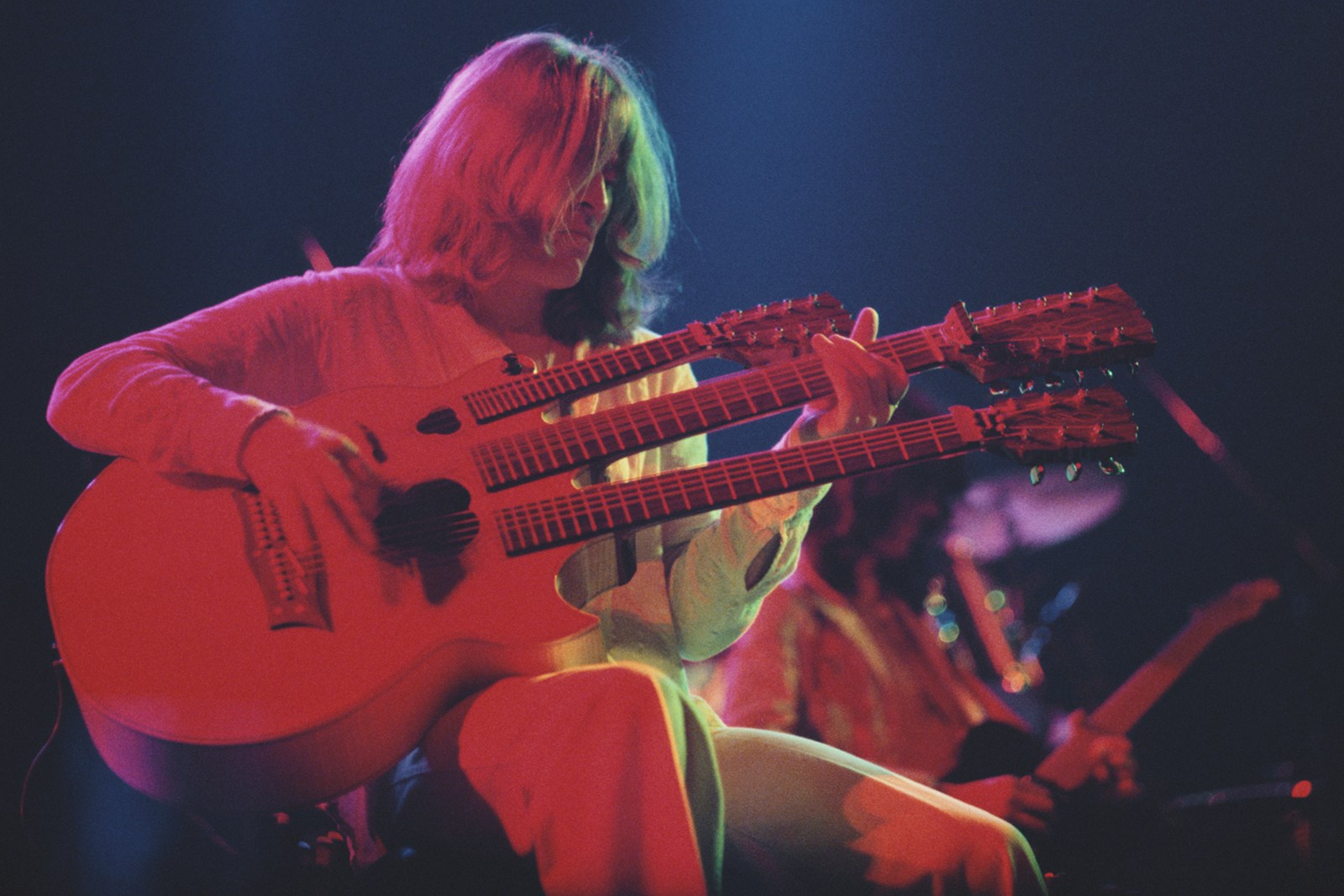It’s safe to say Led Zeppelin were not a singles band.
“Fool in the Rain,” which came out in December 1979 in response to the rabid reception spawned by the In Through the Out Door album release a month earlier, was just the 10th and final single the group released from their eight studio albums before John Bonham‘s death and their subsequent breakup in 1980.
“I always thought of the Stones as a pop group who made singles,” singer Robert Plant explained in 2005. “The whole idea of what we did competing with Bobby Goldsboro as they were wasn’t where we were at. What we said was there’s no point of putting out a single when the album is the statement of the band.”
In Through the Out Door found Plant and bassist John Paul Jones taking a larger role in the songwriting than on previous Led Zeppelin albums, with Jones particularly sparked by his experiments with a new type of musical instrument.
Read More: Led Zeppelin Ends With ‘In Through the Out Door’
“See, you had a situation where Jonesy didn’t contribute much to the songwriting of [1976’s] Presence, and that was a strain. Guitarist and producer Jimmy Page explained in the book Light and Shade: Conversations with Jimmy Page. “I wouldn’t preferred having some input at that point. But he bought a new synthesizer [a Yamaha GX-1] and it inspired him to come up with a bunch of things for In Through the Out Door. He also started working closely with Robert, which was something that hadn’t happened before.”
A major sporting event helped inspire one of the album’s standout tracks, the piano-driven lover’s lament “Fool in the Rain,” which featured an extended middle samba break complete with timpani and street whistles.
“‘Fool in the Rain’ is most unusual for us, really, because, well, I don’t think we would have played it had situations been different,” Plant told J.J. Jackson in a 1979 interview. “But with the World Cup in Argentina in ’78 and a lot of this kind of South American thing going around, and it being every time you watched any soccer on television, it was always a South American kind of rhythm thing going along. It’s not an attempt to be Carlos Santana or anything like that. It’s kind of a little bit diversified and straightforward, you know.”
The song was a significant chart hit, reaching No. 21 in February 1980. The band continued not to care about such things: “We just really wanted to write really good music that would hold up on its own,” Page demurred. “Chart music tends to be a little disposable.”
Besides, Page and Bonham weren’t completely thrilled with the results of Plant and Jones’ leadership on In Through the Out Door. “Bonzo and I had already started discussing plans for a hard-driving rock album after that. We both felt In Through the Out Door was a little soft,” Page explained. “In its place it was fine, but I wouldn’t have wanted to pursue that direction in the future.”
Hear Led Zeppelin Perform ‘Fool in the Rain’
Ranking Every Led Zeppelin Live Album
It took a while, but they finally got things right.
Gallery Credit: Nick DeRiso

